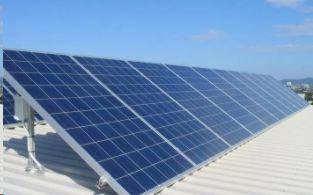Welcome to our blog, where we shed light on the incredible world of solar energy! Today, we are thrilled to dive into the realm of Sunworth‘s different types of solar panels designed specifically for home use. If you’ve ever wondered how harnessing the power of the sun can transform your living space and make a positive impact on both your wallet and the environment, you’re in for an enlightening journey. Get ready to explore Sunworth’s different types of solar panels that not only bring renewable energy straight to your doorstep but also add a touch of innovation and sustainability to your daily life. Let’s embark on this sunny adventure together!
Advantages of Solar Panels
There are many reasons to consider installing solar panels, and the benefits can vary depending on the type of panel you choose. In this article, we’ll explore some of the key advantages of each type of solar panel and help you decide which is right for home use.
Array Solar
Array solar panels are a popular option because they provide an overall larger output than other types of solar panels. This means that arrays can cover a wider area more quickly, making them a good choice for homes that need to generate a lot of power quickly. Additionally, array solar panels are often less expensive than other types of solar panels, and they can be installed in less time than traditional solar panels.
PV Panels
PV (photovoltaic) panels use sunlight to create electricity from thin-film cells. These cells convert light into electricity using the laws of physics, just like the batteries in your cell phone do. PV modules are usually mounted on roofs or in other high-traffic areas where they can capture plenty of sunlight. They’re also relatively simple to install, so they’re a good option for homes that want quick results without having to spend a lot of money on upfront costs.
Feature of solar panels
Different types of solar panels have different features that can improve the efficiency of your home. Here are some of the most important features to consider:
Concentrator solar panels: These panels use a single large lens to capture more sunlight and convert it into electricity. They’re best for larger installations with plenty of sunlight, but they can be more expensive than other types of panels.
PV (photovoltaic) panels: These panels use cells that convert sunlight into electric current. They’re small and lightweight, so they can be mounted on roofs or windows. PV panels are less expensive than concentrator solar panels, but they don’t produce as much electricity.
Grid-tied solar power: This type of panel connects directly to the electrical grid, allowing you to sell excess electricity back to the grid. This is useful if you have a large installation that needs a lot of power or if you want to avoid having your own power plant. Grid-tied solar power is more expensive than other types of solar power, but it’s worth it if you need lots of electricity without having to install extra equipment or pay extra fees.
Conclusion
In this article, we have explored the different types of solar panels and their benefits. After reading this article, hopefully you will have a better understanding of which type of solar panel is right for home use. Maybe Sunworth’s different types of solar panels would be the good choice.
